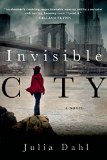Summary | Excerpt | Reviews | Beyond the book | Read-Alikes | Genres & Themes | Author Bio

Disguised as a breathtaking thriller, Avner Mandelman’s novel reveals Israel’s double soul, its inherent paradoxes, and its taste for both art and violence. (Paperback Original)
In Middle East lore the Debba is a mythical Arab hyena that can turn into a man who lures Jewish children away from their families to teach them the language of the beasts. To the Arabs he is a heroic national symbol; to the Jews he is a terrorist. To David Starkman, "The Debba” is a controversial play, written by his father the war hero, and performed only once, in Haifa in 1946, causing a massive riot.
By 1977, David is living in Canada, having renounced his Israeli citizenship and withdrawn from his family, haunted by persistent nightmares about his catastrophic turn as a military assassin for Israel. Upon learning of his father’s gruesome murder, he returns to his homeland for what he hopes will be the final time. Back in Israel, David discovers that his father's will demands he stage the play within forty-five days of his death, and though he is reluctant to comply, the authorities’ evident relief at his refusal convinces him he must persevere.
With his father’s legacy on the line, David is forced to reimmerse himself in a life he thought he’d escaped for good.The heart-stopping climax shows that nothing in Israel is as it appears, and not only are the sins of the fathers revisited upon the sons, but so are their virtues—and the latter are more terrible still. Disguised as a breathtaking thriller, Avner Mandelman’s novel reveals Israel’s double soul, its inherent paradoxes, and its taste for both art and violence. The riddle of the Debba—the myth, the play, and the novel— is nothing less than the tangled riddle of Israel itself.
Paperback Original
If The Debba were a building it might be an M.C. Escher-like structure with staircases doubling back onto themselves creating an awesome network of levels and plotlines. On the surface this may appear to be a murder mystery, but from page one it became clear to me that it was much more than I was expecting... This is a fine book for readers who, like me, have basically only broad-brush knowledge of Middle East politics, have few preconceptions about said politics and who relish ingeniously multi-layered stories...continued
Full Review
(569 words)
This review is available to non-members for a limited time. For full access,
become a member today.
(Reviewed by Donna Chavez).
Mandelman's novel is generously peppered with Yiddish words and phrases, complete with translations. There are other Yiddish words that require no translation having found their way into common English usage; words such as bagel, maven and klutz, have become so widespread that it would be difficult to spend a day without hearing, reading or uttering one of them. Others, such as schmooze, kvetch and shtick, while not as routinely used are nonetheless virtually irreplaceable in reference to the activities or things they describe.
Many people mistakenly believe Yiddish to be a kind of ethnic jargon. However, it is best described as a fusion language that shares a common ancestry with both German and English, in addition to several other ...
This "beyond the book" feature is available to non-members for a limited time. Join today for full access.

If you liked The Debba, try these:

by Julia Dahl
Published 2015
In her riveting debut Invisible City, journalist Julia Dahl introduces a compelling new character in search of the truth about a murder and an understanding of her own heritage.

by David J. Halperin
Published 2011
A sparkling debut novel set in the sixties about a boy's emotional and fantastical journey through alien worlds and family pain.